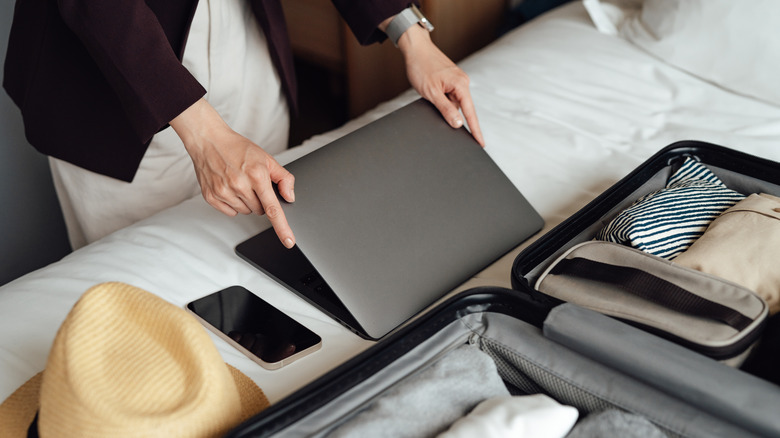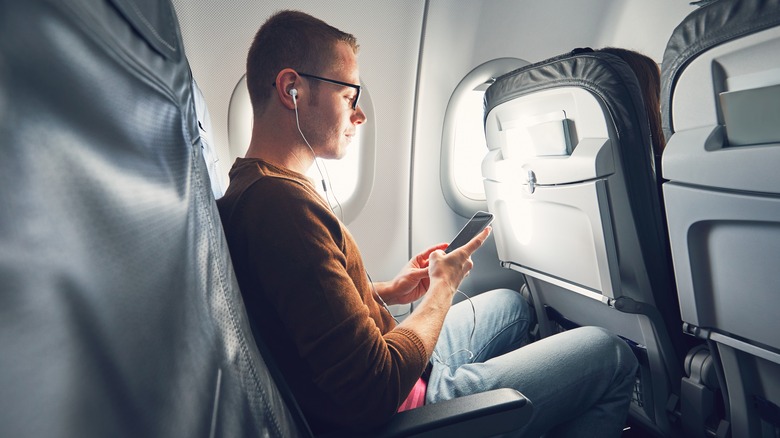The Scary And Easy-To-Make Mistake That Can Cause A Fire On Your Plane
A long list of rules and security measures exist to keep us all safe at 30,000 feet. Firearms are confiscated at U.S. airports, carry-on liquids are strictly limited, and fliers must walk through body scanners to rule out any hidden threats. But even with these regulations, most travelers pack at least one risky item every time they fly.
No, they aren't weapons or explosives in the traditional sense. Instead, they're seemingly harmless everyday essentials: lithium battery-powered electronics. Gadgets containing lithium ion batteries, including most smartphones, laptops, power banks, and disposable e-cigarettes, may overheat and catch on fire, which can have catastrophic consequences if the fire takes place on a plane. A UL Standards & Engagement report stated that in-flight overheating incidents increased by 28% between 2019 and 2023, and an average of two incidents occur in the U.S. each week.
A whopping 35% reported overheating episodes involved an e-cigarette, but what's more shocking is that 27% of passengers admit to packing their vaping devices in their checked luggage. This is against the Transportation Security Administration's rules, as is placing a power bank in your checked bag. Laptops and smartphones, while technically allowed in checked luggage, should also be limited to carry-on bags to minimize the risk of fire.
Why you should never store electronics in checked luggage
While overheating incidents are somewhat rare, the Federal Aviation Administration's log of lithium battery issues serves as a warning of what could go wrong. On a July 2024 American Airlines flight, an electronic device burst into flames, prompting an emergency evacuation. In March 2024, a Breeze Airways flight was diverted after a portable battery charger began emitting smoke, injuring one passenger.
Similar events have occurred on countless other flights, and, thankfully, they often involve a device that can be accessed from within the cabin. When electronics are stowed in the cargo hold, however, the outcome can be dire. For one, passengers and flight crew aren't able to monitor overheating incidents that take place in the luggage hold, and if a fire breaks out, there's no easy way to extinguish it. Another issue with keeping lithium battery-powered devices in checked bags is that they may be more likely to sustain damage. If the airline damages your checked luggage, along with the electronics inside, those gadgets can release flammable volatile compounds.
That explains why the U.S. Department of Transportation banned all Samsung Galaxy Note 7 smartphones, which were found to have a physical defect that triggered fires. Keeping your phones, laptops, vapes, and other items containing lithium batteries in your carry-on bag may help to prevent damage — and therefore may help to prevent fires. If your gadget starts overheating in the air, having it within reach also means you can alert a flight attendant, who can deal with the hazard before it has a chance to endanger those on board.

